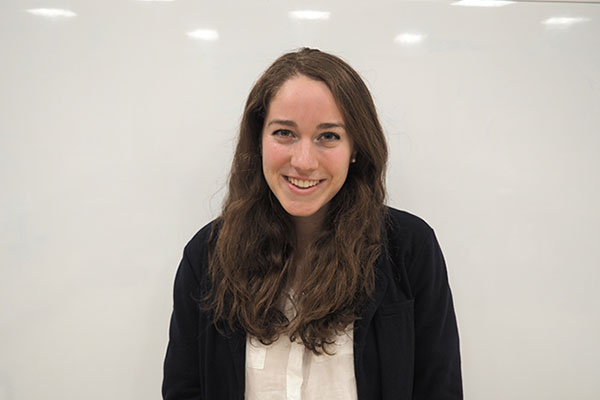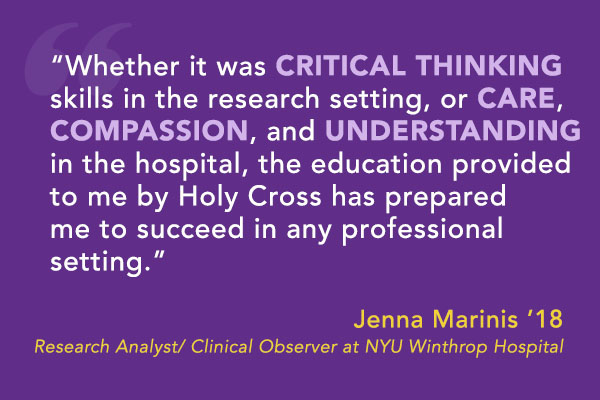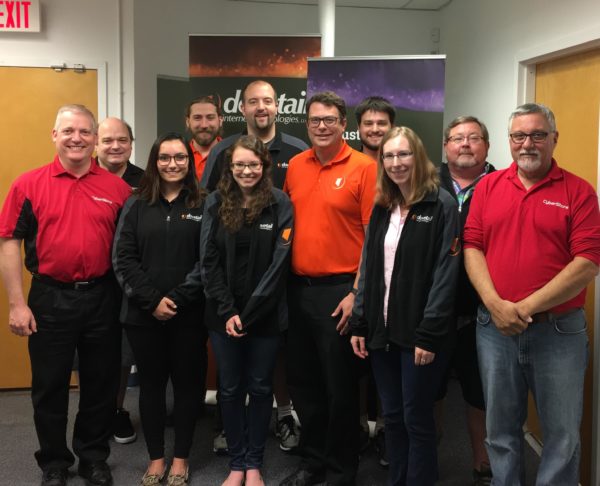Maureen Hodgens’19 interned at SenseAbility Gym this summer. Learn all about the fun and rewarding work she is doing tutoring kids.
Tell us about where you are interning and the kind of work you are doing.
I am interning at SenseAbility Gym, a nonprofit corporation serving special needs children in the greater Worcester area. The gym, located in Hopedale Massachusetts, provides children a safe, clean, spacious area where kids can play and accommodate their sensory needs.
I run the Summer Refresher Program which provides one-on-one academic support (mostly reading comprehension and math) to students. The gym is an excellent location for sessions because students are able to earn break time where they can choose what they would like to do based on their needs (such as relaxing in the quiet room or jumping on the trampoline). The gym serves as a great setting for learning and focus, and the kids feel safe and comfortable going to the gym because many of them have been going since they were just 2 or 3 years old. In addition to tutoring, I also help out at open gym, which is unstructured time where parents and kids can play together while using the equipment. I have been able to assist instructors and other professionals (such as occupational therapists, special education teachers, social workers, and speech pathologists) to help teach children different social, emotional, and physical skills.
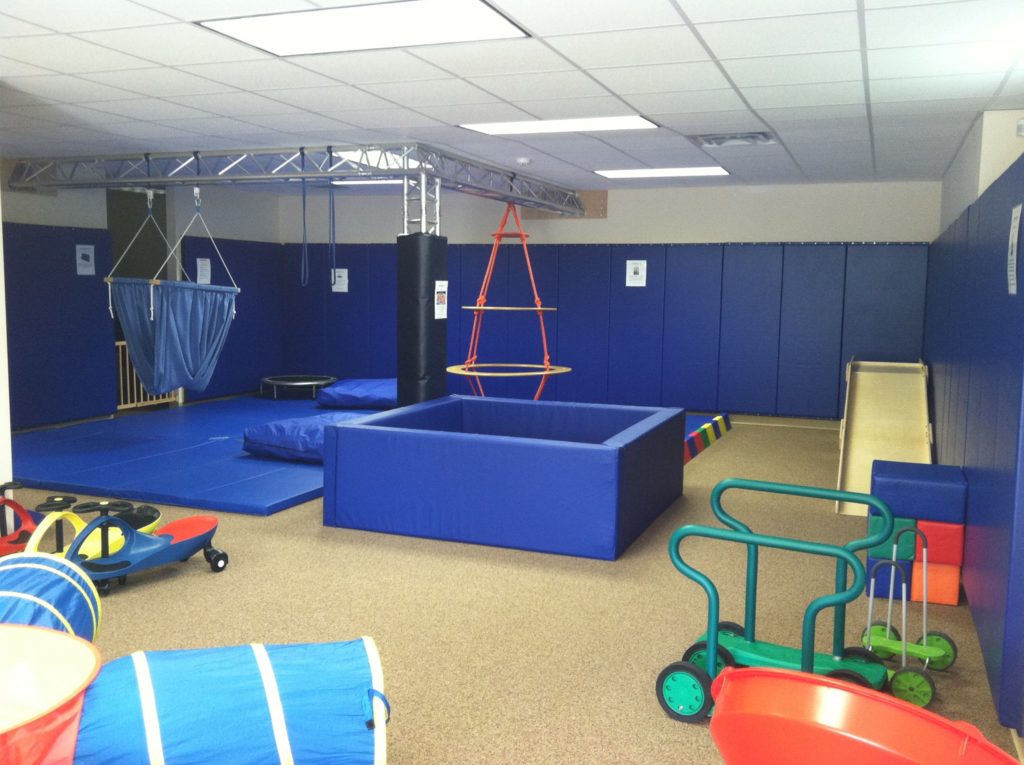
Give us an example of how you have applied your academic learnings to your internship?
I took the course, Educational Psychology, last semester where I learned about many of the challenges that children face on a daily basis at home and in the classroom. These may include a learning disability, attention deficit hyperactivity disorder, developmental disorder, physical disorder, sensory disorder, speech and language disorder, autism spectrum disorder, or emotional and behavioral disorder. Reading about the descriptions of these types of disabilities in a textbook and then memorizing them was a good start, but definitely not sufficient enough to gain a real grasp of these challenges. In order to understand the obstacles that these children face, it is necessary to interact with them and get to know them as a whole person, which is what this internship has provided. Although these labels are used in order to identify and classify types of disabilities, I have learned that even children within these “boxes” are completely different and special in their own way. Through my internship, I have also learned that a child can never be expected to act the same or have the same needs as another child with the same diagnosis. This experience helped me to see students in a much more holistic way.
What has surprised you about being an intern?
It’s surprising that internships can actually be really fun! The work I do isn’t easy by any means, but after spending so much time planning a tutoring session and then executing it, the feeling afterwards is so rewarding. I was also surprised at how quickly I felt welcome at my workplace community. Thanks to my supervisors, Tina and Alysia, as well as the other members of the SenseAbility Gym community, I love going into work each day. I learn something new every day! I think that for a lot of college students, the word “internship” can cause some anxious or negative feelings. However, I have learned that an internship can actually be a positive experience that enriches your skills and helps you to grow as a person.
How did this experience influence or connect to your future career plans / goals?
As a future educator, it is a top priority for me to have exposure and experience with children of ALL needs, and most especially those who have special needs. This internship has reaffirmed my love of children and teaching.
I have learned about classroom strategies to help students with Sensory Integration Dysfunction (SID) such as reducing sensory overload, providing comfortable furniture, planning movement breaks between and during activities, and devising team or group experiences. When coping with sensory integration dysfunction, it’s important for future teachers to know that growing older doesn’t mean getting better at many physical or intellectual tasks. Many teachers don’t learn about SID in their educational training, but the child with SID often has enormous difficulty in the classroom. These students will play a key role in my future classroom, lesson planning, and ultimate execution of my lessons as a teacher.
As a content teacher, I will be able to collaborate effectively with my special education professionals to make the classroom environment more welcoming and effective for all students. Exposure to these children and their parents early on in my training will allow me to facilitate future collaboration with the special education department and enrich the experiences of my future students on IEP’s and 504’s. I’m so grateful that I have had the opportunity to work with children with a variety of needs in an educational setting so far this summer– I have already gained so much more confidence working with children of all abilities!
Any internship advice to pass on to other Holy Cross students?
There’s no doubt that finding a summer internship can be really hard. Sometimes you end up accepting an internship that isn’t your #1 choice, and that’s okay. If you go into your internship with an open mind, you can end up applying what you have learned in ways you never thought were possible. Even though your internship may not be exactly what you want to do everyday for the rest of your life, you can still acquire skills that will help you in the future. If you don’t enjoy your internship even after coming in with an open mind, remember that crossing off a career field from your list is still beneficial. Make note of what you enjoyed doing during your internship, as well as what aspects of your day you didn’t love as much. Tracking what makes you passionate as an intern can help to determine what future job is the best fit for you. Narrowing down a career search is always a positive, so accepting an internship will always be a win-win situation for you!
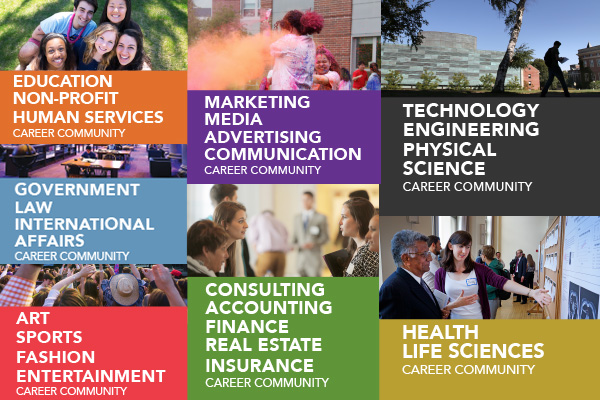


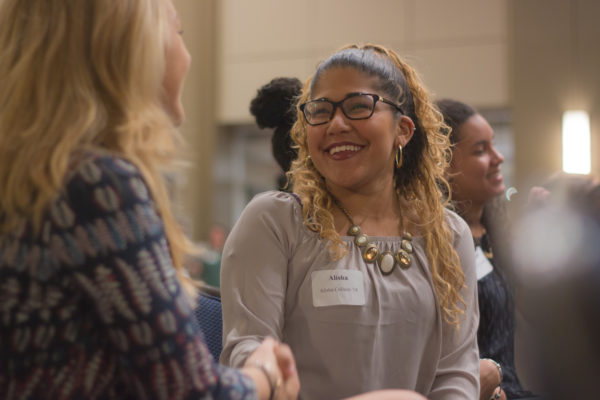
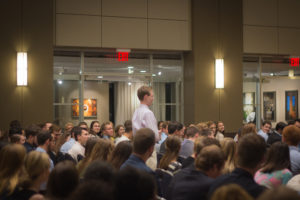
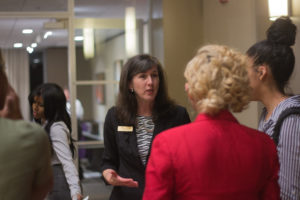
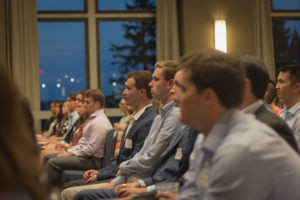
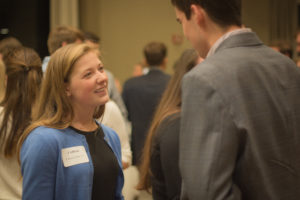
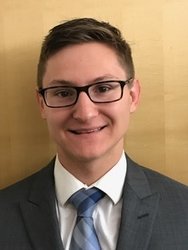
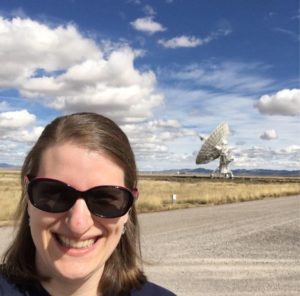 Meet
Meet 